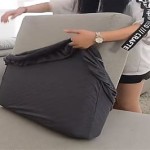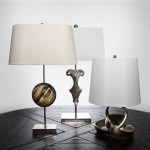Interior Mosquito Repellent: Protecting Your Home from Bites
Mosquitoes are more than just a nuisance; they can transmit diseases like West Nile virus, Zika virus, and dengue fever. While outdoor mosquito control often takes center stage, ensuring a mosquito-free indoor environment is equally crucial. Effective interior mosquito repellents are essential for homeowners and renters seeking to safeguard their health and comfort.
This discussion explores various methods and products available for repelling mosquitoes inside a home, covering both natural and chemical options. This coverage also includes advice on preventative measures to minimize mosquito presence indoors. Understanding the options and their appropriate applications will empower individuals to make informed decisions about mosquito control in their living spaces.
Understanding Mosquito Behavior and Entry Points
Before implementing any repellent strategy, it is important to understand how mosquitoes enter homes. They are attracted to carbon dioxide, body heat, and certain scents emitted by people. Common entry points include open windows and doors, especially those without screens. Cracks in walls, gaps around pipes, and even the spaces between door frames and the door itself can provide access.
Mosquitoes can also be brought inside unknowingly. They may hitch a ride on clothing, pets, or even in grocery bags. Additionally, if there is standing water near the home's foundation or in potted plants outdoors, mosquitoes can breed and easily find their way inside. Identifying and addressing these entry points is fundamental to effective indoor mosquito control.
Consider the time of day when mosquitoes are most active in the area. Many species are most prevalent at dawn and dusk, making it particularly important to keep doors and windows closed during these periods. Additionally, knowing the species of mosquito prevalent in the area can help in choosing the most effective repellent, as some repellents are more effective against certain species than others.
Natural Interior Mosquito Repellent Options
For those seeking natural alternatives to chemical-based repellents, several options are available. These methods often involve using essential oils, plants, or other natural substances to deter mosquitoes.
Essential oils are a popular choice for natural mosquito control. Certain oils, such as citronella, lemon eucalyptus, lavender, peppermint, and tea tree oil, have been shown to repel mosquitoes. These oils can be used in diffusers, added to homemade sprays, or applied topically (with proper dilution) to the skin. When using essential oils topically, it is crucial to dilute them with a carrier oil, such as coconut oil or almond oil, to avoid skin irritation. Start with a small test area to ensure there is no adverse reaction.
Plants can also act as effective mosquito repellents. Citronella grass is a well-known mosquito repellent plant, releasing a distinct scent that deters mosquitoes. Other plants, such as lavender, marigolds, rosemary, and basil, also possess mosquito-repelling properties. Placing these plants near windows and doors can help create a natural barrier against mosquitoes. Keep in mind that the effectiveness of these plants is often dependent on the concentration of their oils; crushing the leaves slightly can release more of the repellent scent.
Another natural approach involves using mosquito nets. These nets can be hung over beds or seating areas to create a physical barrier against mosquitoes. Mosquito nets treated with insecticide offer enhanced protection. Ensuring that the net is properly sealed and free of holes is critical for it to be effective. Regular inspection and maintenance of the net are necessary to maintain its integrity.
Furthermore, using a fan can help to disrupt a mosquito’s flight. Mosquitoes are weak fliers, and the airflow created by a fan can make it difficult for them to approach and bite. This method is particularly effective in smaller rooms or enclosed spaces.
Chemical Interior Mosquito Repellent Products
When natural options are insufficient, chemical-based mosquito repellents may be necessary. These products typically contain active ingredients like DEET, picaridin, or permethrin.
DEET (N,N-diethyl-meta-toluamide) is one of the most widely used and effective mosquito repellents. It works by interfering with a mosquito's ability to locate humans. DEET is available in various concentrations, with higher concentrations offering longer-lasting protection. However, high concentrations of DEET can be irritating to the skin and should be used with caution, especially on children. It is important to follow the product's instructions carefully and avoid applying DEET to broken or irritated skin.
Picaridin is another effective mosquito repellent that is often considered a safer alternative to DEET. It is less irritating to the skin and has a milder odor. Picaridin works similarly to DEET, interfering with a mosquito's ability to find its host. It is available in various formulations, including sprays and lotions.
Permethrin is an insecticide that is used to treat clothing and mosquito nets. It kills mosquitoes on contact. Permethrin-treated clothing can provide long-lasting protection against mosquito bites. However, permethrin should not be applied directly to the skin. It is important to follow the manufacturer's instructions carefully when using permethrin-treated products. Permethrin is particularly effective for individuals spending time in areas with a high risk of mosquito-borne diseases.
Mosquito coils and vaporizers are also chemical-based options for indoor mosquito control. Mosquito coils slowly burn, releasing insecticide into the air. Vaporizers plug into an electrical outlet and release a continuous stream of insecticide. While these products can be effective, they should be used with caution, as they can release potentially harmful chemicals into the air. Proper ventilation is essential when using mosquito coils or vaporizers.
When using any chemical-based mosquito repellent, it is crucial to follow the product's instructions carefully. This includes proper application, ventilation, and storage. Pay particular attention to warnings and precautions, especially regarding use around children and pets. Always wash hands thoroughly after applying repellent.
Preventative Measures for Indoor Mosquito Control
In addition to using repellents, proactive measures can significantly reduce the mosquito population inside a home. These measures focus on eliminating mosquito breeding grounds and preventing mosquitoes from entering the home.
Eliminating standing water is crucial. Mosquitoes breed in stagnant water, so removing potential breeding sites is essential for mosquito control. Regularly empty and clean bird baths, pet water bowls, and flower pot saucers. Ensure that gutters are clean and free of debris, preventing water from accumulating. If there are any areas in the yard where water tends to pool, consider filling them in or improving drainage.
Maintaining screens on windows and doors is another critical step. Ensure that all screens are in good repair, with no holes or tears. Properly fitting screens are essential to prevent mosquitoes from entering the home. Regularly inspect screens and repair any damage promptly. Consider using finer mesh screens, which are more effective at keeping out small insects like mosquitoes.
Using air conditioning can also help to deter mosquitoes. Mosquitoes prefer warm, humid environments, so keeping the indoor temperature cooler can make the home less attractive to them. Air conditioning also helps to circulate the air, making it more difficult for mosquitoes to fly and land. Air conditioning also allows for the closing of windows, further limiting points of entry.
Regular cleaning can help to reduce mosquito attraction. Mosquitoes are attracted to certain odors and organic matter. Regularly vacuuming and cleaning surfaces can help to remove these attractants. Pay particular attention to areas where food is prepared or consumed, as these areas are more likely to attract mosquitoes. Removing decaying organic matter, such as fallen leaves or rotting fruit, can also help to reduce mosquito populations around the home.
Ultimately, a combined approach that includes preventative measures, natural repellents, and, when necessary, chemical repellents, offers the most effective protection against mosquitoes indoors. Consistent vigilance and adherence to these guidelines will create a more comfortable and healthy living environment.

Top 7 Mosquito Repellent Indoor Plants

Mosquito Repellent Indoor Automatic Pyrethrum Dispenser Buy

How To Get Rid Of Mosquitoes Indoors Hunker Mosquito Repellent Homemade Indoor Diy

Dengmore Electric Mosquito Repellent Light New Portable Rechargeable Insect Repellentfly Trap Outdoor Antimosquito Lamp Led Usb Indoor Com

Indoor Mosquito Repellent 45ml Odourless Electric Liquid China And Vaporizer

1 Set Mosquito Indoor Repellent Heater Bug Com

Mosquito Repeller 25m2 Indoor

Inhalation Mosquito Silent Fly Killing Indoor Repellent Lamp Usb

Off Botanicals Indoor Outdoor Mosquito Repellent 8 Pack In The Insect Traps Department At Com

Electric Indoor Mosquito Zapper Home Insect Bug Uv Repellent Lamp The Best S In Joom Geek








